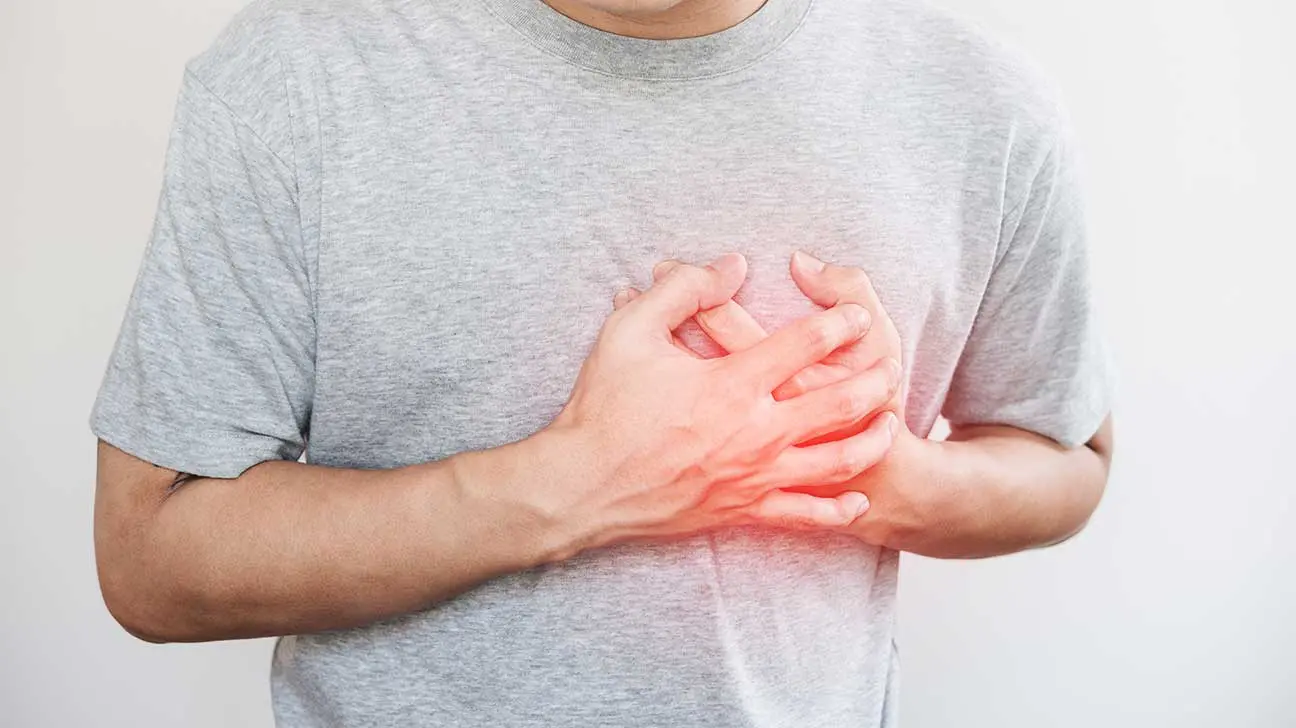
Cardiac issues, including heart rhythm disorder and palpitations, have been reported as potential side effects of methadone use. These side effects are not common.
Potential causes of heart problems while taking methadone include:
- adverse reaction to methadone
- taking very high doses of methadone
- negative interaction with other drugs
- underlying heart condition
If you’re concerned about heart problems in someone you know who is taking methadone, here is information about the effects of methadone on the heart and risk factors.
Find out more about the physical effects of methadone
How Does Methadone Affect The Heart?
Methadone is an opioid medication that alters activity in the brain and nervous system. It binds to opioid receptors that help to regulate various bodily systems.
One of the bodily systems affected by methadone is the cardiovascular system, which consists of the heart, veins, arteries, and capillaries.
Methadone, and other opioid drugs, can affect the heart muscle and its general function, which can—in serious cases—lead to cardiac problems.
What Types Of Heart Problems Can Methadone Cause?
Methadone can affect the heart and heart muscle in a number of ways. When taken as directed by a doctor, serious heart problems are unlikely but do occur in a small portion of people.
Potential heart problems while taking methadone can include:
- very fast or slow heart rate
- heart rhythm disorder (i.e. cardiac arrhythmia)
- QT prolongation
- heart palpitations
- torsades de pointes (French for “twisting of the points”)
- cardiomyopathy
- cardiac arrest
- cardiac failure
The severity of methadone’s cardiac effects can vary. Severe heart problems, including cardiac arrest, can be life-threatening. For this, emergency medical treatment may be required.
Risk Factors For Heart Problems While Taking Methadone
Not everyone who takes methadone for chronic pain or opioid addiction will experience heart problems. A number of factors can increase this risk in some people.
Risk factors for heart problems might include:
- genetics
- advanced age
- chronic drug abuse
- taking excessively high doses of methadone
- history of illicit drug use
- electrolyte abnormalities
- heart disease
- poor overall health
Elderly patients and people with chronic health issues may be at greater risk for experiencing heart problems while taking methadone.
If you’re concerned about heart problems while taking methadone, consider talking to your doctor about these concerns before taking methadone to learn if this medication is right for you.
Signs Of Cardiac Issues While Taking Methadone
Some heart problems can be identified by certain warning signs and symptoms. If you experience signs of a heart issue while taking methadone, contact your doctor right away.
Signs and symptoms of a heart problem might include:
- unusually fast or slow heartbeat
- dizziness
- weakness
- chest pain or pressure
- difficulty breathing
- shortness of breath
- discomfort in the upper body
- cold sweat
- collapsing
If someone you know collapses, is unable to wake up, or is unresponsive after taking methadone, call 911 for emergency medical assistance.
How Common Are Heart Problems While Taking Methadone?
Heart problems are not a common side effect of methadone. Generally, this is a sign of an adverse reaction to methadone, overdose, or another underlying heart condition.
When taken as directed, methadone is safe for use. It can effectively treat opioid withdrawal and help improve quality of life outcomes for people seeking to overcome opioid addiction.
Learn More About Methadone Treatment Today
Methadone is one of several medications that is FDA–approved as a medication-assisted treatment for opioid use disorder, which can be deadly without treatment.
For more information about methadone or how to find a drug rehab program that offers methadone near you, call our helpline to speak to a specialist today.
Addiction Resource aims to provide only the most current, accurate information in regards to addiction and addiction treatment, which means we only reference the most credible sources available.
These include peer-reviewed journals, government entities and academic institutions, and leaders in addiction healthcare and advocacy. Learn more about how we safeguard our content by viewing our editorial policy.
- American Heart Association — Symptoms, Diagnosis and Monitoring of Arrhythmia
https://www.heart.org/en/health-topics/arrhythmia/symptoms-diagnosis--monitoring-of-arrhythmia - New Zealand Medicines and Medical Devices Safety Authority — Cardiac Vigilance Recommended for Methadone
https://www.medsafe.govt.nz/profs/puarticles/methadone.htm - U.S. Food & Drug Administration (FDA) — DOLOPHINE (methadone hydrochloride)
https://www.accessdata.fda.gov/drugsatfda_docs/label/2015/006134s038lbl.pdf - U.S. National Library of Medicine — A systematic review of the cardiotoxicity of methadone
https://pubmed.ncbi.nlm.nih.gov/26869865/


